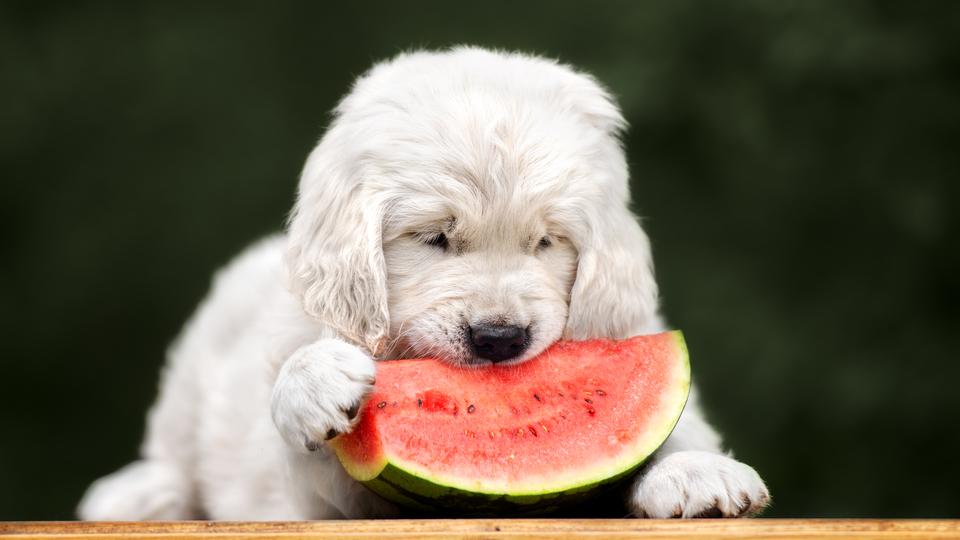As dedicated dog owners, we often find ourselves wondering what human foods are safe for our furry friends. With summer in full swing, juicy watermelons are hard to resist—not just for us, but for our pets too! This vibrant, sweet fruit can make for a refreshing treat on a hot day, but is it really safe for dogs?
In this article, we’ll explore the truth about watermelon and its suitability for our canine companions. From potential health benefits to important precautions, we’ll provide you with the information you need to make informed choices for your pup’s diet. So grab a slice of watermelon, and let’s dive into all things canine and fruity!
Table of Contents
- Understanding Watermelon and Its Nutritional Benefits for Dogs
- Potential Risks and Precautions When Feeding Watermelon to Dogs
- How to Safely Prepare Watermelon for Your Canine Companion
- Alternatives to Watermelon for a Hydrating Treat for Dogs
- Q&A
- In Conclusion
Understanding Watermelon and Its Nutritional Benefits for Dogs
Watermelon is a hydrating fruit that can be a delightful summer snack for your furry friend. It is composed of about 92% water, making it an excellent choice for keeping dogs hydrated, especially on warm days. Beyond its refreshing taste, watermelon is low in calories and packed with essential vitamins and minerals. Some of the nutritional benefits include:
Vitamins A and C: Boosts the immune system and promotes healthy skin and vision.
Fiber: Aids in digestion, helping to maintain a healthy gastrointestinal system.
Antioxidants: Protects cells from oxidative damage and enhances overall health.
When introducing watermelon to your dog’s diet, it’s crucial to prepare it correctly to avoid any potential risks. Always remove the seeds and rind before offering watermelon, as these can pose choking hazards or digestive issues. Here’s a quick comparison of watermelon’s nutritional content for dogs:
| Nutrient | Amount per 100g |
|---|---|
| Calories | 30 kcal |
| Protein | 0.6 g |
| Fat | 0.2 g |
| Carbohydrates | 7.6 g |
| Fiber | 0.4 g |
Potential Risks and Precautions When Feeding Watermelon to Dogs
While watermelon can be a refreshing treat for your furry friend, it’s essential to consider certain risks associated with feeding it to dogs. First and foremost, the seeds can pose a choking hazard and may lead to intestinal blockage if ingested. Always remove the seeds before offering watermelon to your dog. Additionally, the rind should be avoided since it can be tough for dogs to digest and might cause gastrointestinal upset. It’s advisable to introduce watermelon in small quantities to observe how your dog reacts, as some dogs may be sensitive to new foods.
Another critical aspect is the potential for overindulgence. Watermelon has a high water and sugar content, which can lead to diarrhea and upset stomach if consumed excessively. To safely incorporate watermelon into your dog’s diet, consider the following precautions:
| Precautions | Notes |
|---|---|
| Remove seeds | Prevent choking and blockage |
| Avoid the rind | Reduce risk of digestive issues |
| Serve in moderation | Limit sugar intake and prevent upset stomach |
How to Safely Prepare Watermelon for Your Canine Companion
When offering watermelon to your dog, moderation is key. Introducing any new food should be done gradually to monitor for any adverse reactions. Keep an eye on your pet while they enjoy their treat, ensuring they’re chewing properly and not swallowing large chunks. Remember, while watermelon is hydrating and packed with beneficial nutrients like vitamins A and C, it should only be an occasional snack. Here are a few tips to keep in mind:
- Only share seedless watermelon.
- Avoid the rind entirely.
- Serve in small portions to prevent digestive upset.
- Monitor for any signs of allergic reaction.
Alternatives to Watermelon for a Hydrating Treat for Dogs
If you’re looking for tasty and hydrating alternatives to watermelon for your furry friend, there are plenty of options that can quench their thirst while providing essential nutrients. Fruits like cantaloupe, strawberries, and peaches are not only delicious but also packed with vitamins and minerals. Just like watermelon, these fruits have a high water content, making them an excellent choice for keeping your dog hydrated on hot days. Always ensure that you remove any seeds or pits before sharing these treats with your pup to avoid potential choking hazards.
Consider creating a fruit salad specifically designed for your dog! You can mix and match different fruits to provide variety and excitement at snack time. Here are some safe and hydrating fruits to include:
- Cantaloupe: Rich in vitamins A and C.
- Strawberries: High in antioxidants and fiber.
- Peaches: Great for hydration and vitamin A.
- Blueberries: Packed with antioxidants and low in calories.
| Fruit | Water Content (%) | Key Nutrient |
|---|---|---|
| Cantaloupe | 89% | Vitamin A |
| Strawberries | 91% | Vitamin C |
| Peaches | 89% | Vitamin A |
| Blueberries | 84% | Antioxidants |
Q&A
Q1: Can dogs eat watermelon?
A: Yes, dogs can eat watermelon in moderation! It’s a juicy fruit that many pets enjoy. Just be sure to remove the seeds and rind, as these can cause digestive issues.
Q2: What are the benefits of giving watermelon to dogs?
A: Watermelon is low in calories and high in vitamins A, B6, and C, making it a great treat for dogs. Its high water content can also help keep your pup hydrated, especially during hot weather.
Q3: Are there any risks associated with feeding watermelon to dogs?
A: While watermelon is generally safe, there are a few risks to consider. The seeds can cause intestinal blockages, and the rind may lead to digestive upset. Always serve watermelon in small, manageable pieces and without the seeds or rind.
Q4: How should I prepare watermelon for my dog?
A: Start by choosing a ripe watermelon. Wash it thoroughly to remove any pesticides and dirt. Cut it into small, bite-sized pieces, removing the seeds and rind before offering it to your dog.
Q5: How much watermelon can I give my dog?
A: Moderation is key! A few small pieces are enough for most dogs. If it’s your dog’s first time trying watermelon, start with a tiny amount to see how they react.
Q6: Are there any dogs that shouldn’t eat watermelon?
A: While most dogs can enjoy watermelon, those with certain health conditions, like diabetes, should limit their intake of fruits. It’s always a good idea to consult your veterinarian if you’re unsure.
Q7: Can watermelon be a regular part of my dog’s diet?
A: Watermelon should be considered an occasional treat rather than a regular part of your dog’s diet. A balanced diet tailored to your dog’s needs is the best way to keep them healthy.
Q8: What other fruits are safe for dogs to eat?
A: In addition to watermelon, many fruits are safe for dogs, including apples (without seeds), bananas, blueberries, and strawberries. Just be sure to research each fruit and prepare it properly!
Q9: What are some creative ways to serve watermelon to my dog?
A: You can freeze watermelon pieces for a cool treat, blend it into a smoothie (without any additives), or mix it with their regular food for a fun twist. Just be sure to keep portions appropriate!
Q10: What should I do if my dog has an adverse reaction to watermelon?
A: If your dog shows any signs of distress, such as vomiting, diarrhea, or any unusual behavior after eating watermelon, contact your veterinarian immediately. It’s always better to be safe and get professional advice.
Enjoy sharing this refreshing snack with your furry friend, and remember to always prioritize their health and safety!
In Conclusion
while watermelon can be a delightful and hydrating treat for your dog, it’s essential to keep a few key points in mind to ensure their safety and enjoyment. Always serve it in moderation, remove any seeds and rind, and monitor your pet for any unusual reactions. By taking these simple precautions, you can share this juicy summer fruit with your furry friend, making both of your days a little brighter. Remember, if you’re ever unsure about introducing new foods into your dog’s diet, consulting with your veterinarian is a great step to ensure their health and happiness. Happy snacking!
















